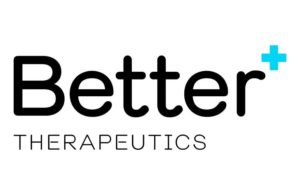 Better Therapeutics announced today that it commenced a real-world evidence study to evaluate its treatment for Type 2 diabetes.
Better Therapeutics announced today that it commenced a real-world evidence study to evaluate its treatment for Type 2 diabetes.
Collaborating with Steward Health Care, Better Therapeutics is evaluating BT-001, an investigational, prescription digital therapeutic (PDT) designed to deliver a novel form of cognitive-behavioral therapy to patients with uncontrolled Type 2 diabetes, according to a news release.
Over the course of one year, the open-label, non-randomized, controlled study will evaluate approximately 1,000 patients with Type 2 diabetes in Steward Health Care engaged with BT-001. Participants will include individuals with A1c levels between 7% and 11% across Medicare, Medicaid and commercial health insurance plans.
The primary objective is to observe the subjects’ change in A1c and total healthcare costs after one year of treatment compared to the control. Other metrics being evaluated include changes in blood pressure, blood lipids, weight, cardiometabolic medications, cardiometabolic medication costs and medical costs.
Better Therapeutics, which just last week announced that it would go public through a $113 million merger with Mountain Crest Acquisition Corp II, anticipates topline primary endpoint data in the second half of 2022.
The company anticipates reporting topline primary endpoint data in the second half of 2022.
“With the astronomical and growing cost of care for patients with type 2 diabetes and other cardiometabolic conditions, patients, providers and payers all deserve therapeutics that address the root causes of disease, yet we continue to spend hundreds of billions of dollars on medicines that only address symptoms,” Better Therapeutics co-founder & CEO Kevin Appelbaum said in the release. “We believe our prescription digital therapeutic has the power to positively disrupt the current standard of care and help patients with behavior-driven conditions, translating to improved patient outcomes and significant healthcare savings.
“We look forward to the results of this study, which will generate important evidence that we believe could provide support for payer reimbursement.”

